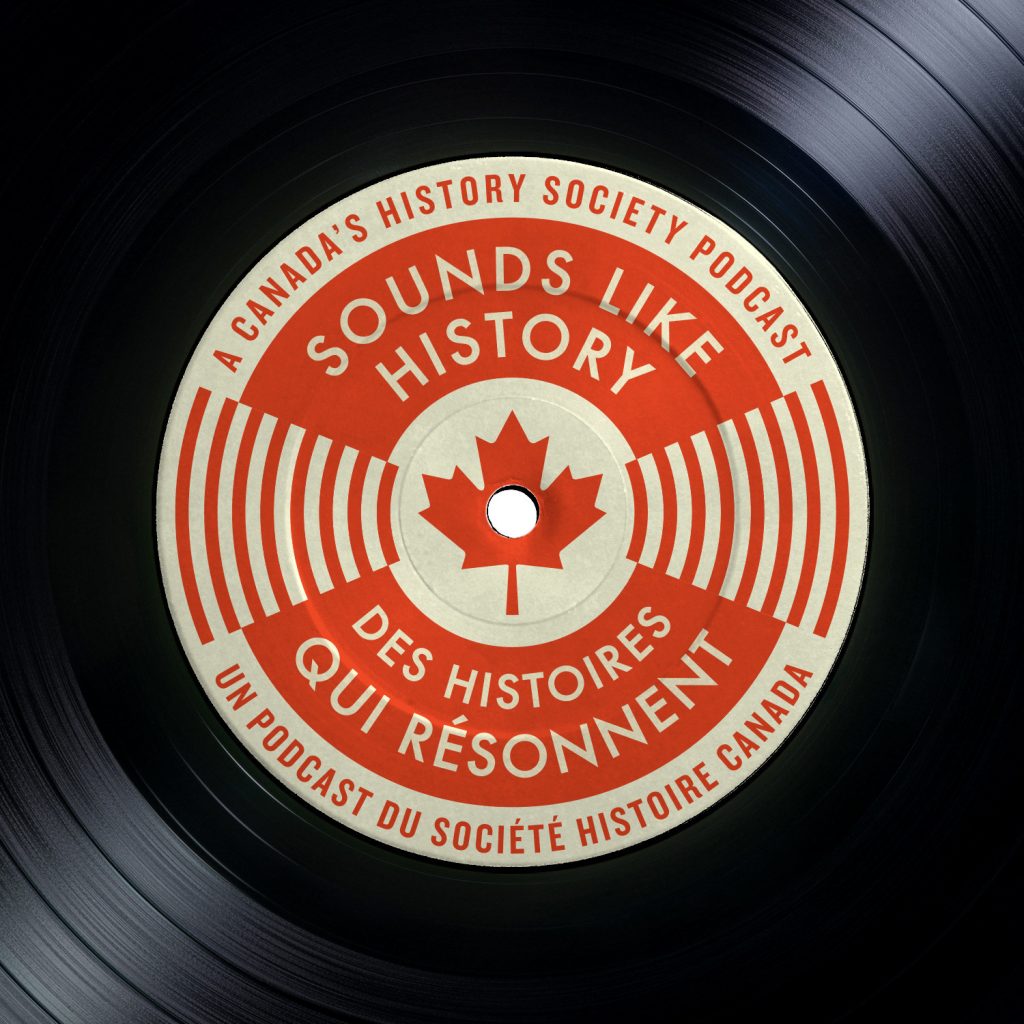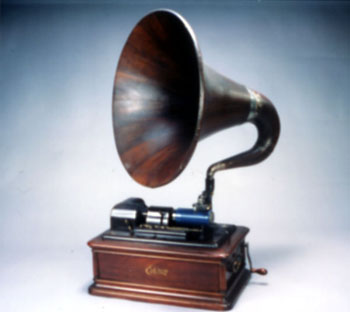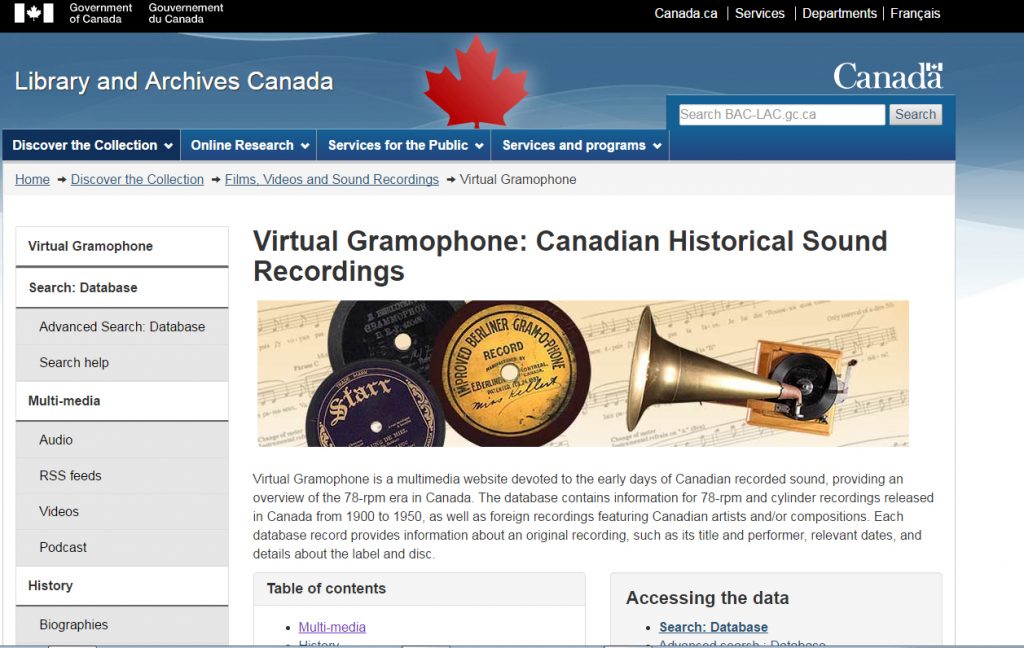The soundscapes of Canada’s past can be explored thanks to a new podcast and online digital audio project called Sounds Like History.

Canadas History Society announces Sounds Like History a new podcast series about Canadian historical sound recordings from the Virtual Gramophone collection at Library and Archives Canada. (CNW Group/Canada’s History)
But sit down, Beliebers! Wait your turn, Tragically Hip-sters! Even fans of The Shays have to wait because this archive is all about 78 rpm and cylinder recordings released in Canada from 1900 to 1950.
It’s the result of a major digitization project that both preserves and opens access to what are called “the sonic treasures” of Canada, all part of the online Virtual Gramophone audio collection portal.
It’s been a major endeavour to find and identify; clean and refresh; digitize and distribute all those old wax and shellac resin discs into a contemporary streaming media format.
Supported by collaboration between Canada’s History Society, and Library and Archives Canada (LAC), sound archivists, media technicians and cultural historians have all chipped in. Now, Canadians everywhere can explore decades-old songs that embody the stories and sentiments of past generations.
Canada’s History Society was established in 1994 with the support of the Hudson’s Bay Company History Foundation, still its largest donor. The Society’s mission is to promote greater popular interest in Canadian history, principally through its publishing and educational activities and its recognition programs acknowledging the achievements of others.
“Canada has a rich musical legacy, and we’re proud and excited to share this with Canadians,” said Mark Collin Reid, Editor-in-Chief of Canada’s History Society.
Reid is also the co-host of an initial run of six special Sounds Like History podcasts, three in English and three in French; each episode explores in greater depth some individual songs preserved in LAC’s Virtual Gramophone collection.
LAC’s music experts — archivists Rachelle Chiasson-Taylor and Maureen Nevins, and librarian Joseph Trivers — join Reid and Jean-Philippe Proulx to reveal stories behind a chosen song, and share insights about the composers and performers of the tunes.
In the debut episode, for example, the archivists take listeners through two very different music recordings: one, a popular love song from the First World War that revolves around a romantic encounter involving doughnuts; and two, the recording of a baroque masterpiece that had originally been released for the phonograph as a monstrous 36-disc set.

An early record player, or audio platform – the Berliner “A” gramophone, produced in Montreal in 1899. Image courtesy Canada Science and Technology Museum/1977.0119.
Monstrous, because if you do not know, some of the first such recordings held only about two minutes of music on a seven-inch diameter disc that could weigh nearly a pound (a few hundred grams) each!
Although the so-called 78 rpm records were the state-of-the-art for several years, many in fact did not spin at 78 revolutions per minute, due to the lack of technological standardization in earliest days of sound recording.
So a 78 recorded at 76.6 rpm must be played at 76.6 rpm for the sound to be right, meaning archivist and digitization specialists had to make one-by-one audio transfers from each old disc to a real-to-real tape machine, so they could assess and manipulate the sound without further risking or damaging the original recording medium.
Of course, those original discs and cartridges needed a lot of physical care and protection.
The age and fragility of the media meant that a lot of unwanted noise – clicks, pops, crackles and hiss – had to be aurally removed.
The digitizers applied CEDAR (Computer Enhanced Digital Audio Restoration) processing to remove, reduce or eliminate the unwanted sounds, in real time.
The audio processing and editing were done on a PC-based digital audio workstation (DAW), running Pyramix by Merging Technologies, which combines real-time hard disk recording, digital audio mixing, editing, audio effects processing, and CD-R mastering.
As well, the cleaned-up recordings were converted and compressed into digital audio streaming formats so they could easily be incorporated into the online portal and database; RealAudio encoding was used.
Along with the music, then, the Sounds Like History database contains information for 78 rpm and cylinder recordings released in Canada from 1900 to 1950, as well as foreign recordings featuring Canadian artists and/or compositions. Each searchable database record provides information about an original recording, such as its title and performer, relevant dates, and details about the label and disc.
But if you just want to sit back and enjoy (good music can do that), the archive’s podcast series may be on your Top 20 hit list.
# ##
The new online audio resource is another great example of the use of technology to preserve and bring to life historical content and to give it some context for today. One example is the Canadian-launched World Wars Aboriginal Veterans Portal; it’s seen as the largest and most comprehensive source of data about aboriginal soldiers of the First and Second World Wars. The WWAVP already documents the lives of 8,300 individuals through images, biographies, and transcriptions of all known or accessible biographical details about the soldiers.
Along with the new WWAVP website, there are other online sources of information, including the Canadian Aboriginal Veterans website. WWAVP estimates that 12,000 aboriginal (Inuit, Metis, and First Nations) people served in Canada’s armed forces during the First and Second World Wars.
-30-

Sit down, Beliebers! Wait your turn, Tragically Hip-sters! Even fans of The Shays have to wait, because this archive is all about 78-rpm and cylinder recordings released in Canada from 1900 to 1950.



